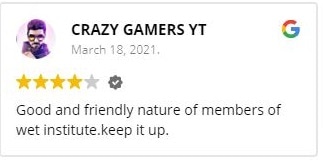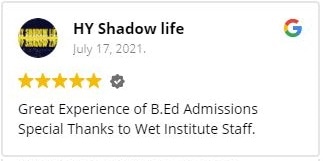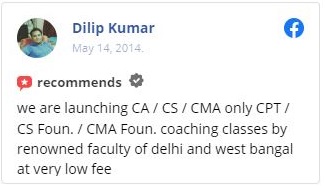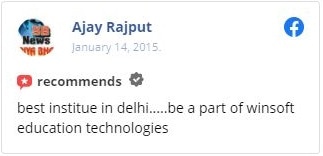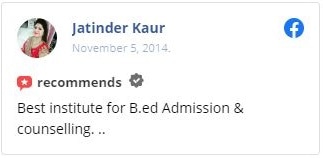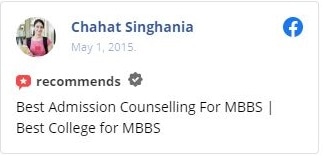Bachelor of pharmacy
Bachelor of Pharmacy
Bachelor of Pharmacy is an undergraduate program for four years. The program is for the aspirants looking out to establish their careers in the pharma industry. The students in this program are introduced to the fundamentals of drug making, chemicals, dispensing medicines and much more. A candidate having an interest in pursuing a career as a pharmacist must mandatorily have a bachelors degree in pharmacy.
The four-year program of B. Pharma is divided into 6-8 semesters. The course curriculum focuses on both the theory aspect of pharmacy as well as its practical implications. B. Pharma provides great knowledge and understanding about pharmacy, healthcare and biotech.
The Pharmacy Council of India (PCI) regulates the course and drafts the norms and regulations pertaining to the undergraduate program. B. Pharma enables one to practices the profession as a pharmacist post completing the graduate degree.
Moreover, the demand and exposure that the pharma industry is offering are humungous. Umpteen sectors and industries are scouting Pharma graduates. It is one of the most flourishing and ever-growing sectors. Hence, a bachelors degree in pharmacy is sure to open multiple career options in healthcare, pharmacy, biotech and medical science field.
B.Pharma Eligibility
The eligibility criteria for B Pharmacy courses are basic and comprehendible.
Below mentioned explains elaborately the eligibility criteria for B Pharmacy,
- Students aspiring to take up the B. Pharma program must have cleared Class 12 board exams with 50% aggregate marks from a recognised board
- They must have Physics, Chemistry, Biology and Mathematics as their academic subjects at their +2 level.
The students that fulfil the eligibility criteria can appear for the entrance exams. Many colleges and institutes also consider the merit (marks) of the students as a prime criterion for student selection.
B.Pharma Admission Process
- The admission for B. Pharma is based on the common entrance examination.
- The government/state have their own entrance examination for B. Pharma
- Some colleges, institutes and universities process admission based on the cutoff or merit list
Some popular B. Pharma entrance tests are:
- MH-CET: Maharashtra Entrance Test
- BHU-B Entrance Test
- Goa Common Entrance Test
B.Pharma Curriculum
The syllabus of B. Pharma consists of Remedial Biology, Physiology, Chemistry Biochemistry, Pharmaceuticals and Human anatomy. The undergraduate program provides a deep understanding of each of the subjects and an elaborate idea about the field.
SEMESTER – I | |
Human Anatomy and Physiology I – Theory | Human Anatomy and Physiology – Practical |
Pharmaceutical Inorganic Chemistry – Practical | Pharmaceutical Inorganic Chemistry I – Theory |
Communication Skills – Theory | Communication Skills – Practical |
Remedial Biology/ Remedial Mathematics – Theory | Remedial Biology – Practical |
Pharmaceutical Analysis I – Practical | Pharmaceutical Analysis I – Theory |
Pharmaceutics I – Theory | Pharmaceutics I – Practical |
SEMESTER – II | |
Human Anatomy and Physiology II – Theory | Human Anatomy and Physiology II – Practical |
Biochemistry – Theory | Biochemistry – Practical |
Computer Applications in Pharmacy – Theory | Computer Applications in Pharmacy – Practical |
Pharmaceutical Organic Chemistry I – Theory | Pharmaceutical Organic Chemistry I – practical |
Pathophysiology – Theory | Environmental Science – Theory |
SEMESTER – III | |
Pharmaceutical Organic Chemistry II – Theory | Pharmaceutical Organic Chemistry II – Practical |
Pharmaceutical Microbiology – Theory | Pharmaceutical Microbiology – Practical |
Pharmacognosy and Phytochemistry I – Practical | Physical Pharmaceutics I – Practical |
Physical Pharmaceutics I – Theory | Pharmaceutical Engineering – Practical |
Pharmaceutical Engineering – Theory | ——– |
SEMESTER – IV | |
Physical Pharmaceutics II – Theory | Physical Pharmaceutics II – Practical |
Medicinal Chemistry I – Theory | Medicinal Chemistry I – Practical |
Pharmacology I – Theory | Pharmacology I – Practical |
Pharmacognosy and Phytochemistry I – Theory | Pharmaceutical Organic Chemistry III – Theory |
SEMESTER V | |
Pharmacognosy Phytochemistry II – Theory | Pharmacognosy Phytochemistry II – Practical |
Pharmacology II – Theory | Pharmacology II – Practical |
Industrial Pharmacy I – Theory | Industrial Pharmacy I – Practical |
Medical Chemistry II – Theory | Pharmaceutical Jurisprudence – Theory |
Herbal Drug Technology – Practical | ——- |
SEMESTER – VI | |
Medical Chemistry III – Theory | Medical Chemistry III – Practical |
Pharmacology III – Theory | Pharmacology III – Practical |
Herbal Drug Technology – Theory | Biopharmaceutics and Pharmacokinetics – Theory |
Pharmaceutical Biotechnology – Theory | Quality Assurance – Theory |
SEMESTER – VII | |
Pharmaceutical Analysis III – Theory | Pharmaceutical Analysis III – Practical |
Pharmacokinetics and Biopharmaceutics I | Pharmacognosy IV |
Pharmacology IV – Theory | Pharmacology IV – Practical |
Pharmaceutical Technology IV – Theory | Pharmaceutical Technology IV – Practical |
SEMESTER – VIII | |
Medical Chemistry IV – Theory | Medical Chemistry IV – Practical |
Pharmacokinetics and Biopharmaceutics II | Biopharmaceutics |
Pharmacognosy | Clinical Pharmacy – Theory |
Pharmacokinetics | Clinical Pharmacy – Practical |
B.Pharma Scope or Future Advantages
B Pharmacy offers a wide variety of choices to the students. The degree does not restrict oneself to healthcare and pharmaceuticals.
Here are some of the areas where you can pursue your career post the competition of the B. Pharma undergraduate program.
Medical Writer: Medica writers are responsible to work with doctors and maintaining the record of product use, details, medical records, documentation, medical information and much more.
Clinical Researcher: You can take up a career as a Clinical researcher. A clinical researcher collects and analyses data obtained from testing, analysis, surveys and research.
Drug Inspector: You can also work as a Drug Inspector and oversee the quality of a drug. Drug inspector also takes care of licenses and other documentation required by pharmacists and pharmaceutical companies.
Medical Representative: A medical representative sells various medicines and give information to medical stores, doctors and others about the medical product/drug/medicine.
Pharmacy Business: If you have a keen interest in business, you can start your venture to distribute and dispense medicines.
Hospital Pharmacist: A hospital pharmacist dispenses medications in a hospital. As Hospital Pharmacists will have to manage the inventory of medicines, drugs and distribute the medicine in the hospital as per the prescriptions given by the physician.
Salary in India for B. Pharma graduates
The salaries received after the completion of B. Pharm varies depending upon the college, institution and dynamism of the candidate. Some institutes and colleges do have guaranteed placements that enable students to kick start their career with a steady and handsome package. Thus, if you want to make it big in the Pharmaceutical Sciences then, B. Pharma is the course that you must pursue.


